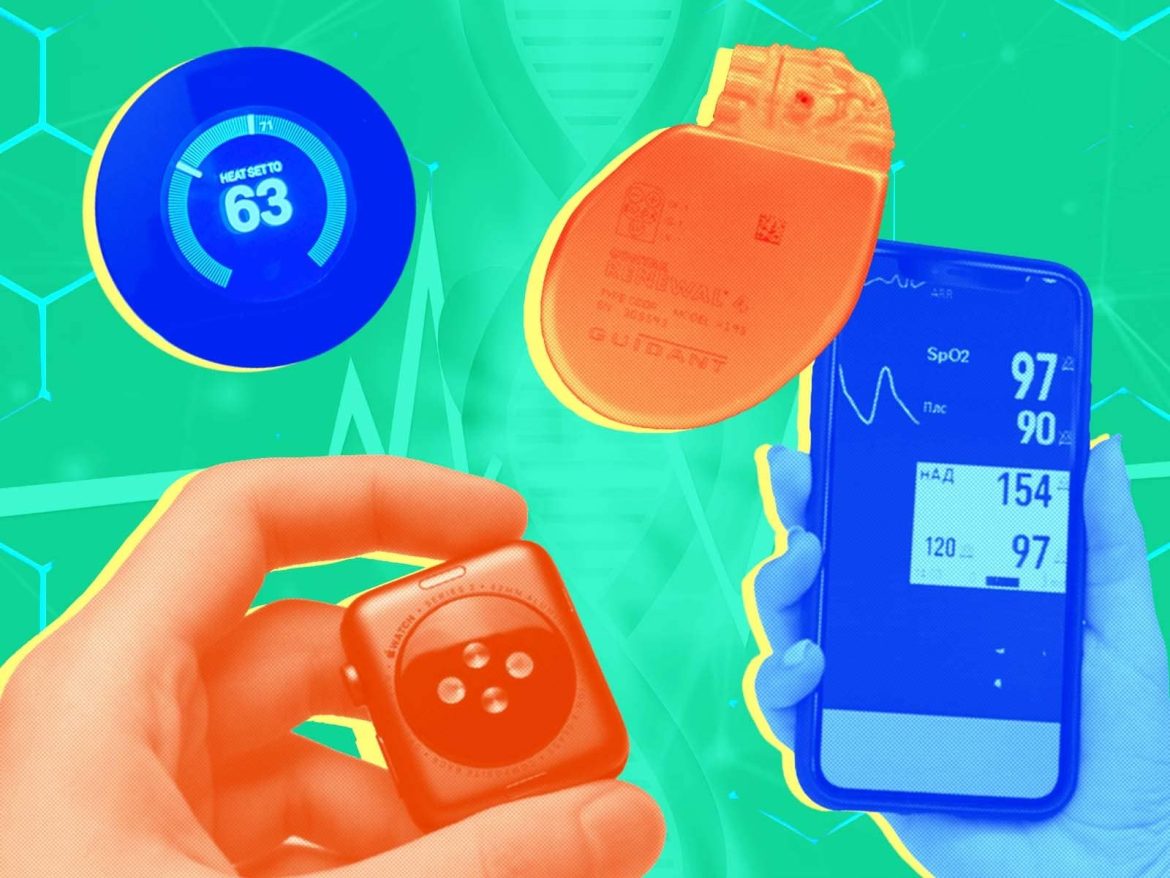The intersection of technology and healthcare has given rise to a revolutionary trend: wearable health tech. These innovative devices, often worn on the body or integrated into clothing, are designed to monitor and improve health, enabling individuals to take an active role in their well-being. In this article, we will explore the exciting world of wearable health technology, its applications, and the potential it holds for transforming the healthcare landscape.
The Evolution of Wearables
Wearable health tech has come a long way since the introduction of pedometers and heart rate monitors. Today’s wearables are equipped with advanced sensors, wireless connectivity, and sophisticated algorithms, making them powerful tools for health management.
1. Fitness Trackers: Fitness wearables, such as smartwatches and activity trackers, monitor physical activity, heart rate, sleep patterns, and more. They provide users with real-time feedback and motivate them to maintain an active lifestyle.
2. Health Monitors: Wearables like continuous glucose monitors and blood pressure cuffs offer valuable insights into chronic conditions, helping individuals manage their health more effectively.
Vital Sign Monitoring
One of the significant contributions of wearable health tech is its ability to provide continuous monitoring of vital signs.
1. Heart Rate Monitoring: Wearables can track heart rate trends, detect irregularities, and even predict potential heart issues, enhancing early intervention.
2. Blood Pressure: Continuous blood pressure monitoring allows for a more comprehensive understanding of cardiovascular health and better management of hypertension.
Chronic Disease Management
Wearable health tech is a game-changer for individuals living with chronic diseases.
1. Diabetes Management: Continuous glucose monitors provide real-time glucose data, helping individuals with diabetes make informed decisions about their diet, medication, and insulin dosing.
2. Respiratory Health: Smart inhalers and wearable devices assist those with respiratory conditions like asthma by tracking inhaler use and environmental factors that may trigger symptoms.
Remote Patient Monitoring
The COVID-19 pandemic highlighted the importance of remote patient monitoring, and wearables played a pivotal role in this shift.
1. Telemedicine Integration: Wearables can transmit health data to healthcare providers, enabling remote consultations and reducing the need for in-person visits.
2. Early Disease Detection: Wearable health tech can help detect early signs of diseases, allowing for timely intervention and better outcomes.
Mental Health and Well-Being
Beyond physical health, wearable health tech addresses mental health and well-being.
1. Stress Management: Wearables can monitor stress levels through heart rate variability and offer guided relaxation exercises to reduce stress.
2. Sleep Tracking: Tracking sleep patterns helps users identify sleep issues and make lifestyle changes to improve sleep quality.
Challenges and Considerations
While wearable health tech holds immense promise, several challenges must be addressed:
1. Data Security: Protecting sensitive health data is critical. Strong encryption and data protection measures are essential to ensure privacy.
2. Data Accuracy: Ensuring the accuracy of health data collected by wearables is vital for making informed healthcare decisions.
The Future of Wearable Health Tech
The future of wearable health technology is bright, with several exciting developments on the horizon.
1. Advanced Sensors: Wearables will incorporate even more advanced sensors, enabling the detection of a broader range of health parameters.
2. Personalized Health AI: Artificial intelligence will play a more prominent role in analyzing health data, providing personalized health recommendations, and predicting health outcomes.
Conclusion
Wearable health tech represents a remarkable convergence of technology and healthcare, empowering individuals to take charge of their health and well-being. These devices have the potential to revolutionize how we monitor and manage our health, making healthcare more accessible, convenient, and proactive. As wearable technology continues to evolve and integrate with healthcare systems, it will play an increasingly significant role in preventive care, chronic disease management, and remote patient monitoring. The future of healthcare is wearable, and it promises a healthier, more connected, and more informed world for all.
